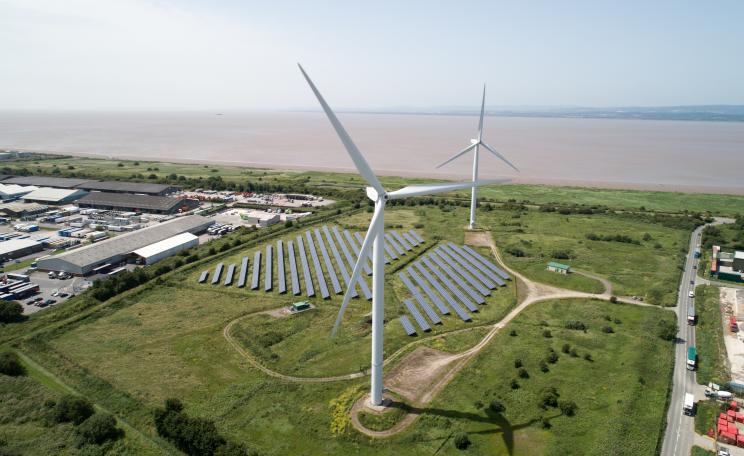To call the Coghlin Report damning of the actions and behaviour of senior members of the Democratic Unionist Party would be an understatement
The ink is now well dry on the Coghlin Report into Northern Ireland’s Renewable Heat Incentive (“RHI”) scandal, published 13 March 2020.
The controversy is sometimes known as “RHI-gate” and collapsed the Northern Irish government in January 2017. It was only restored in January 2020.
The RHI scheme provided subsidies intended to boost uptake of non-domestic renewable heat, and the main systems involved were biomass boilers that create heat by burning wood pellets. Northern Ireland’s devolved administration bungled the financial mechanism underpinning the scheme. It set the pay-out for burning the pellets at a substantially higher rate than the cost of the pellets themselves, locking payments in for a set 20-year period.
Scandal
The disastrous result was a projected unforeseen cost of £490m to the Northern Irish taxpayer, and a whole new vocabulary was born as catastrophic revelations began to seep out: “Cash for Ash”, “The More you Burn, the More you Earn”.
In spite of RHI-gate’s immensity, major issues including coronavirus and Brexit served to push the publication and impact of the weighty three-volume Cohglan Report into the background, notwithstanding its much-awaited exposé of maladministration and scandal.
Given the importance and severity of the issues, it is wise to take stock of them with fresh eyes now that we are a little further down the road.
To call the Coghlin Report damning of the actions and behaviour of senior members of the Democratic Unionist Party would be an understatement, including not just (then) senior ministers like Arlene Foster, but also so-called Spads – Special Advisors – notably Stephen Brimstone and Andrew Crawford.
In fairness, Brimstone has made a discernible positive contribution to the RHI affair, namely by providing a name worthy of Charles Dickens that lets titles write themselves.
Devolution
To call the Coghlin Report damning of the actions and behaviour of senior members of the Democratic Unionist Party would be an understatement
Where attention does return, the headline-grabbing shenanigans of the DUP and its Spads tend to absorb the RHI-gate spotlight, and, to a lesser extent, various civil servants and Ofgem (the RHI administrator), who also come out badly in the report.
But this tends to belie the fact that there are other points of importance deserving of attention that should be drawn out too. Take Northern Ireland’s peculiar constitutional circumstances.
The Northern Ireland administration has a tendency to follow and adopt UK-wide energy policy fairly passively. In my working life as a legal academic producing research, I and others like me have been at pains to stress that Northern Ireland is possessed of the most extensive devolved energy powers in the whole of the UK, and its administration should therefore recognise a particular obligation to employ those powers as actively and progressively as possible in order to improve Northern Irish conditions.
Interestingly, the Coghlin Report notes that Chris Stewart, former deputy secretary to Northern Irish government department DETI, stressed the following to the Inquiry: "[A] very strong desire on the part of [Northern Ireland government] Ministers to make the most of devolution and to show that the value of devolution is that it’s locally elected, locally accountable… politicians, who are making the policy decisions that shape society and shape Northern Ireland."
All well and good. But the report also betrays what appears to be an internal culture of pressure brought to bear on senior Northern Irish politicians to passively follow UK approaches.
Power
It is elaborated that when DETI sought legal advice in relation to drafting the RHI regulations from the Departmental Solicitor’s Office, the DSO “explained that the working practice was not to ‘deviate from what [Great Britain’s] doing unless there’s a very good reason to do so.’”
DETI also consulted solicitors firm Arthur Cox, which “also agreed that consistency with GB was 'an overarching principle'".
Indeed, a sense of national dismissiveness of Northern Irish governance comes across as somewhat entrenched, as where correspondence between DETI and national-level departments HM Treasury and DECC took place without the latter two institutions apparently bothering to disclose certain crucial information to Northern Ireland. And on the examples could go.
These trends demonstrate a profound constitutional misunderstanding that seems to have arisen. Elite actors have failed to understand that devolved powers are just that, devolved powers. Politicians are elected to use those powers in the interest of their electorate.
That is their specific mandate. Now that the devolved administration is back up and running, it’s time to get on and use them. Wisely, this time.
This Author
Dr Thomas L Muinzer is a senior lecturer at the University of Aberdeen. His research focuses on the Low Carbon Transition, with particular reference to climate law and governance and issues around decarbonisation of the energy sector. He is also a co-founder and contributing editor at Freckle.





